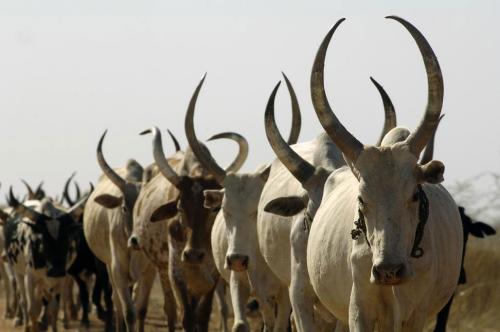UN warns that foot-and-mouth disease outbreak in Egypt threatens entire region
Urgent action is needed to control a major outbreak of foot-and-mouth disease in Egypt and prevent its spread throughout North Africa and Middle East, with serious implications for food security, the United Nations Food and Agriculture Organization (FAO) warned today.

Some 40,222 suspected cases of the disease have been reported in Egypt, according to official figures, with 4,658 animals, mostly calves, having died, FAO reported in a press release. According to the agency’s livestock census data, 6.3 million buffalo and cattle and 7.5 million sheep and goats in Egypt could be at risk.
FAO pointed out that although foot-and-mouth disease has been endemic in the country for years, the current outbreak is linked to a new strain of the virus for which the country’s livestock have no immunity.
It added that vaccines are urgently needed, as while Egypt has some reserves of vaccines, they do not protect against the strain of foot-and-mouth disease involved.
At the request of the Egyptian Government, an FAO emergency team visited the country last week to assess the situation with local veterinary authorities. A joint disease containment strategy was drawn up focussing on limiting the spread through various measures, including vaccination.
Livestock attendants have been advised to limit animal movement and ensure that livestock from different farms do not mingle. Traders are also to avoid buying animals that may have come into contact with infected ones and ensure proper disposal of carcasses, preferably by incinerating or burying them.
“We are working closely to support the Government to bring the outbreak under control,” said FAO’s Chief Veterinary Officer, Juan Lubroth. “The area around the Lower Nile Delta appears to be severely affected, while other areas in Upper Egypt and the west appear less so.”
Foot-and-mouth disease affects all cloven-hoofed animals, including sheep, goats, cattle, buffalo and pigs. It causes serious production losses and can be lethal, particularly to younger animals.
Meat and milk from sick animals are unsafe for consumption, but the disease does not affect humans.
Source: UN NEWS
- 491 reads
Human Rights
Fostering a More Humane World: The 28th Eurasian Economic Summi

Conscience, Hope, and Action: Keys to Global Peace and Sustainability

Ringing FOWPAL’s Peace Bell for the World:Nobel Peace Prize Laureates’ Visions and Actions

Protecting the World’s Cultural Diversity for a Sustainable Future

Puppet Show I International Friendship Day 2020

